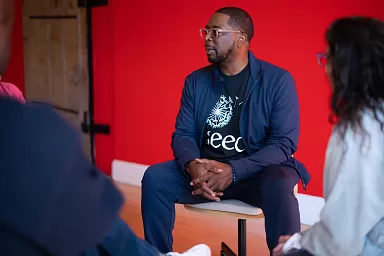People
Meet our SEED staff team: those who train new SEED leaders and provide ongoing support and guidance to SEED leaders across the country and around the world.

SEED leaders are community organizers, educators, and social service providers. They can be found facilitating conversations in classrooms, local libraries, multi-site organizations, online, and beyond with the common goal of working toward social justice and a commitment to wholeness, wellness, and just relationship with others.
As the core of SEED, the staff team trains new leaders to facilitate seminars in their own communities, organizations, and institutions. The SEED staff continues to lead their own seminars and further their own learning while providing ongoing support and guidance to trained SEED leaders across the country and around the world.

In 1987, Peggy McIntosh, author of the classic paper, “White Privilege: Unpacking the Invisible Knapsack,” founded the National SEED Project to confirm her belief that teachers could be leaders of their own professional development. She and Emily Style, author of the 1988 article “Curriculum as Window and Mirror,” co-directed the project for its first 25 years. Brenda Flyswithhawks, whose consulting was a shaping force from the beginning, also served as a co-director for 15 years from 2002-2016. The scholarly activism of SEED, which has always been housed at the Wellesley Centers for Women at Wellesley College, seeks to balance, in the words of Emily Style, “scholarship on the shelves” with “scholarship in the selves."
Now in its fourth decade, SEED is currently led by Co-directors Ruth Condori-Aragón, Gail Cruise-Roberson, Jondou Chase Chen, and Motoko L. Maegawa. SEED originated and continues to operate at the Wellesley Centers for Women at Wellesley College. It now also operates at the Southeast Seattle Education Coalition (SESEC), with regional network hubs around the country.
Meet our SEED staff team: those who train new SEED leaders and provide ongoing support and guidance to SEED leaders across the country and around the world.
Where SEED Seminars Have Sprouted: SEED is in almost every US state and countries around the globe.
Our project leadership is based at two sites, with Gail Cruise-Roberson and Emmy Howe at the Wellesley Centers for Women, and Jondou Chen at the Southeast Seattle Education Coalition.